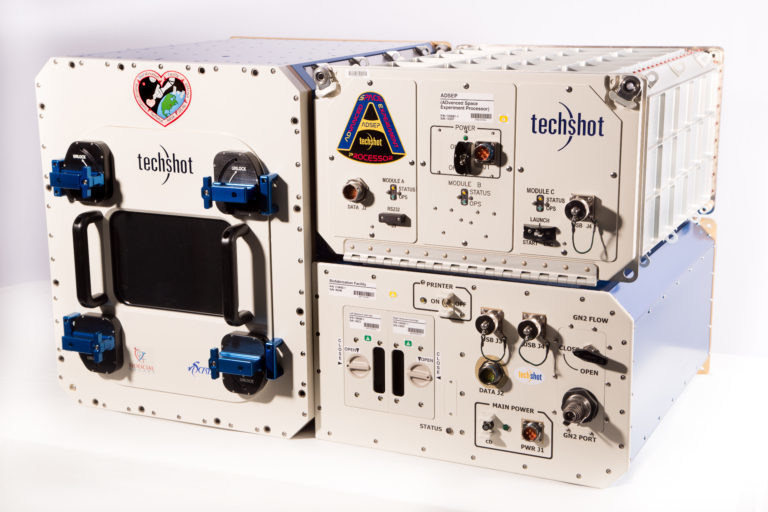The 3D BioFabrication Facility (BFF) bioprinter from nScrypt, a Florida-based 3D printing system manufacturer, and spaceflight equipment developer Techshot is set to launch on the International Space Station (ISS) next month.
Said to be the first 3D printer capable of manufacturing human tissue in microgravity conditions, the BFF will be launched aboard the SpaceX CRS-18 cargo mission from Florida’s Cape Canaveral Air Force Station. The partners hope that 3D bioprinting in space will be capable of producing self-supporting tissues that could lead to the development of therapeutic treatments.
“The concept of developing tissue or an organ in space with a 3D bioprinter has been with us for years,” said John Vellinger, President and CEO of Techshot.
“From the technological and biological perspectives, making it really has been a painstaking process of experiments and testing. To see this coming together is an amazing thing for the team, as well as for all of medical science.”
Extraterrestrial 3D bioprinting
Based in Orlando, Florida, nScrypt is spin out of Sciperio Inc which, under a DARPA contract, developed an award-winning bioprinter in 2003. Techshot, on the other hand, is located in Greenville, Indiana, and has almost three decades of experience in the development of spaceflight equipment.
Vellinger’s first project to earn its place on a NASA mission was a KFC-sponsored payload intended to study how microgravity in space affects the growth of chicken embryos. In 2016, with help from bio-ink startup, Bioficial Organs, the companies were able to successfully 3D print cardiac and vascular structures in zero gravity.
Manufacturing on Demand
Last year, the following phase of a NASA sponsored mission to 3D print human organs and tissues in space was announced to be launched in February 2019. Now, the quest of manufacturing hearts and other organs via a 3D bioprinter is continuing in July. This ultimately aims to reduce the current shortage of donor organs worldwide.

Space-made cell structures
During the companies years of research, it was found that 3D bioprinted soft, easily flowing biomaterials (i.e, human tissue) collapse under their own weight. However, these same materials are able to maintain their shapes when produced in the microgravity environment of space.
Thus, these structures, which will consist of blood vessels and muscle, will be 3D bioprinted in space and placed in a cell-culturing system that strengthens them over time. This will permit them to become viable, self-supporting tissues that will remain solid once back on Earth.
The initial phase for BFF, which could last an estimated two years, will involve creating test prints of cardiac-like tissue of increasing thickness. The following phase will involve an Earth-based evaluation of heart patches manufactured in space under a microscope and potentially in small animals such as rats. This is expected to last through 2024.
* This article is reprinted from 3D Printing Industry. If you are involved in infringement, please contact us to delete it.
Author: Tia Vialva

Leave A Comment